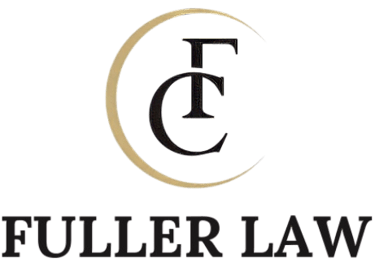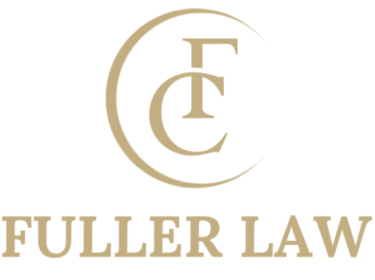How to Choose the Right Lawyer in Florida
How to Choose the Right Lawyer in Florida [2025 Guide] shares practical tips so you find the best fit, avoid mistakes, and protect your interests every step.
LEGAL TIPS FOR CONSUMERS

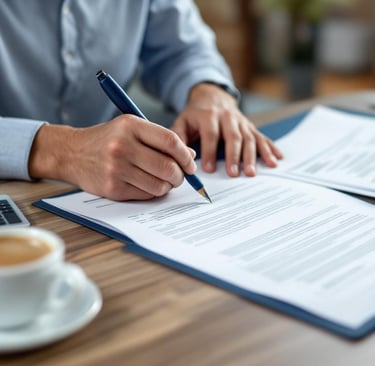
How to Choose the Right Lawyer in Florida [2025 Guide] Choosing the right lawyer in Florida means more than just picking a name from a directory. Your attorney can shape the outcome of your case, protect your interests, and help you move forward with confidence. When it comes to complex issues like family matters, criminal charges, or business disputes, this decision affects your future, finances, and peace of mind.
Understanding how to choose the right lawyer in Florida helps you avoid costly mistakes and ensures you get the support you deserve. With so many options, knowing what to look for and which questions to ask is key. You'll learn the practical steps that truly make a difference when selecting your legal advocate.
Assessing Your Legal Needs
Before picking a lawyer, take a step back and look at your specific situation. Figuring out the type of legal help you need makes the process of choosing the right lawyer in Florida much easier. You’ll save time, avoid confusion, and boost your chances of a good result by starting with clear goals and expectations.
Identifying the Type of Lawyer You Need
Different lawyers handle different types of cases. When you know your issue, you can focus on attorneys who have experience in that area. Here are some common types of legal specialties you might consider:
Family Law: Covers divorce, child custody, and support issues.
Criminal Defense: If you face criminal charges, a criminal defense lawyer protects your rights.
Personal Injury: For injuries from car accidents or other incidents, a personal injury attorney can help you seek compensation.
Business Law: Handles contracts, business formations, and disputes.
Estate Planning: For wills, trusts, and probate matters.
Real Estate Law: Assists with property transactions, leases, and disputes.
If your situation doesn’t fit neatly into one category, look for a lawyer with a broader practice area or more than one specialty. Some attorneys, such as those highlighted in the Fuller Law Injury Attorney Profile, handle multiple areas like personal injury, family law, and criminal defense.
Matching Your Situation to a Legal Specialty
Think about the details of your case. Are you dealing with a sensitive family situation or a serious criminal charge? Is your case about money, property, or your reputation? The right match between your problem and a lawyer’s skills is key.
Here’s a simple approach:
Define the problem – Write down what happened and what outcome you want.
Consider complexity – If your case is complex or high-stakes, look for an attorney with a successful track record in similar cases.
Check for local experience – Laws in Florida may differ from other states. A Florida-based lawyer familiar with your type of case is a smart choice.
Knowing what you need before you call or meet with lawyers leads to better questions and smoother first meetings.
Prioritizing Your Legal Goals
Take a moment to think about your priorities. Do you want a quick settlement? Are you hoping to clear your name? Is privacy or cost the main concern? These goals shape your search for a lawyer and help you compare your options more effectively.
Write out your concerns, must-haves, and deal-breakers. Share these up front so any lawyer you talk to understands exactly what matters most to you.
When you start by assessing your legal needs, you improve your chances of choosing the right lawyer in Florida and reduce stress down the road. If you want to discuss your case directly, you can always Reach Out to Fuller Law Tampa for a consultation.
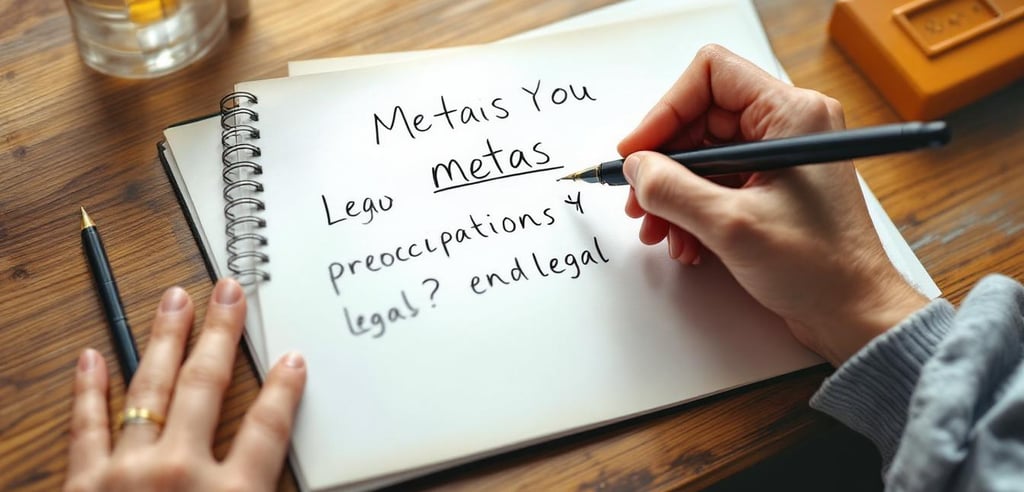

Key Qualities to Look for in a Florida Lawyer
Picking a Florida lawyer isn’t just about finding someone with a law degree. You want an attorney you trust, who gets results, and who truly understands the local legal scene. Focusing on the right qualities early can save you from headaches later. When thinking about how to choose the right lawyer in Florida, pay the most attention to credentials, experience, and reputation.
Verifying Credentials and Licensure
First, always check that the attorney is licensed to practice law in Florida. This might seem basic, but it’s your first safety net. Every lawyer must be admitted to the Florida Bar to represent clients in state courts. Use the Florida Bar’s online directory to confirm the lawyer’s standing. Is the lawyer up to date on their license, and have they faced any disciplinary action? A lawyer in good standing follows Florida’s rules and stays current with legal updates.
Make sure the attorney’s credentials match the service you need. If your issue is personal injury or criminal defense, for example, check that the lawyer’s Florida Bar profile reflects these areas. Proper credentials show the lawyer follows state rules and brings credibility to your case.
Evaluating Experience and Track Record
Once you’ve confirmed a lawyer’s credentials, take a close look at their real-world experience. Not all attorneys have the same background, so you want someone with a strong record in your specific area of need. Ask about the types of cases they’ve handled and the results they’ve achieved. See if they can share any examples, without breaching client privacy.
Look out for these details:
Relevant Case History: Find out if the lawyer has worked on cases similar to yours. This helps predict how they’ll handle your situation.
Success Rate: While no lawyer can promise results, a positive track record should inspire confidence.
Courtroom and Negotiation Experience: Some cases are settled out of court, while others require strong trial skills. Make sure your lawyer is comfortable in either setting if needed.
Dig into their background on the Florida Bar website or their firm’s own site to see if they’ve won awards or recognition for their work. The more targeted their experience, the better equipped they’ll be to handle your needs.
Assessing Client Reviews and Reputation
Feedback from past clients says a lot about how a lawyer works. You can find reviews on Google, Avvo, and specialized law directories. Read both positive and negative comments to spot any patterns. Are clients praising the lawyer’s responsiveness and honesty, or are there complaints about communication?
Look for:
Testimonials: These personal stories reveal how the lawyer treats clients and solves tough problems.
Peer Ratings: What do other lawyers or industry professionals say?
Professional Recognition: Has the attorney received any awards or special acknowledgements that signal respect within the legal community?
A strong reputation, built on positive client outcomes and respect from other attorneys, can help you feel secure about your choice. Focusing on these key traits makes a big difference as you work through how to choose the right lawyer in Florida.
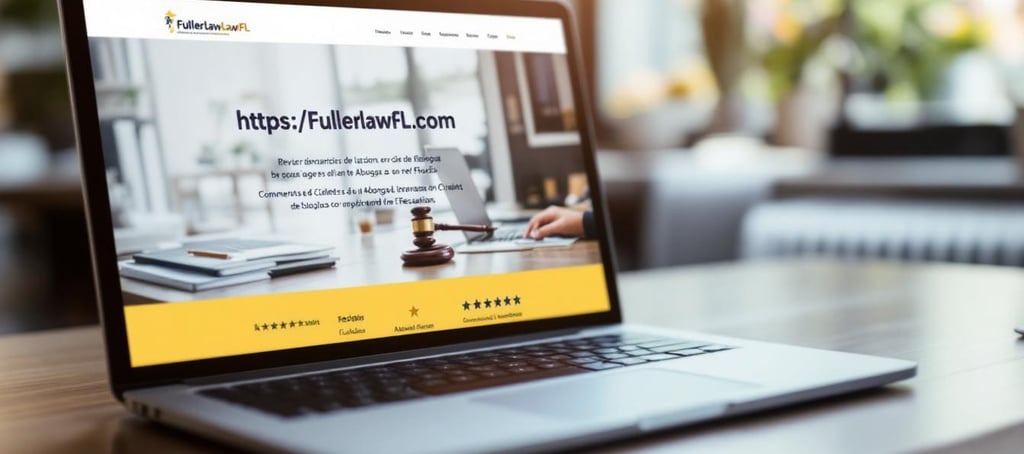

Understanding Legal Fees and Billing Structures
Before you move forward with a new lawyer, understanding how you'll be charged is just as important as checking reviews or credentials. Every attorney sets fees a bit differently, and the billing structure can influence how much you pay and when. Being clear about this early can help you plan your finances, avoid unwanted surprises, and build a stronger, more open relationship with your attorney. If you’re figuring out how to choose the right lawyer in Florida, getting a handle on fees is a big part of the process.
Attorneys in Florida typically use a few common fee arrangements. Here’s what you should know about each:
Hourly rates: You pay for every hour your lawyer works on your case. This model is common for most legal work, especially when the amount of time needed is hard to predict. Rates can vary depending on experience and location. Lawyers should be able to give you a ballpark range during your first meeting.
Contingency fees: For cases like personal injury, your attorney only gets paid if you win or settle your case. The lawyer’s fee comes out as a percentage of the award, so there may be less upfront cost. Always ask what the percentage is and if you'll owe anything if you lose.
Flat fees: The lawyer charges a set amount for a specific task, like preparing a will or handling a real estate closing. This method works best for legal work with clear boundaries and predictable time commitments.
Knowing these options helps you choose what makes sense for your budget and needs.
Questions to Ask About Fees and Costs: List Practical Questions to Ensure Transparency and Avoid Hidden Fees
It’s easy to feel overwhelmed by legal fee discussions. To put yourself in control, ask direct questions during your consultation so both you and your attorney start on the same page. Here are some key questions you can bring:
How do you charge for your services—hourly, flat fee, or contingency?
What is your hourly rate or, if using contingency, what percentage do you take?
Are there any additional costs, like court fees, expert witnesses, or filing charges?
Can you estimate the total cost for my case based on similar cases?
How and when will you bill me—monthly, after milestones, or at the end of the case?
If it’s a flat fee, what exactly does it cover, and are there any services that cost extra?
What happens if my case takes longer than expected or needs extra work?
Will I need to pay a retainer up front? If so, how does that work?
Can you provide a written fee agreement that spells out all charges in plain language?
By using a checklist approach, you keep the conversation grounded and practical. Think of this process like getting an estimate before car repairs. You deserve to know what you’re paying for, with no confusion down the road.
Choosing the right lawyer in Florida means picking someone who won’t leave you guessing about your bill. Don’t hesitate to ask for clarity, and ask follow-up questions until you feel confident. Transparency in billing not only protects your wallet—it shows you’ve found a lawyer who values trust and strong communication.
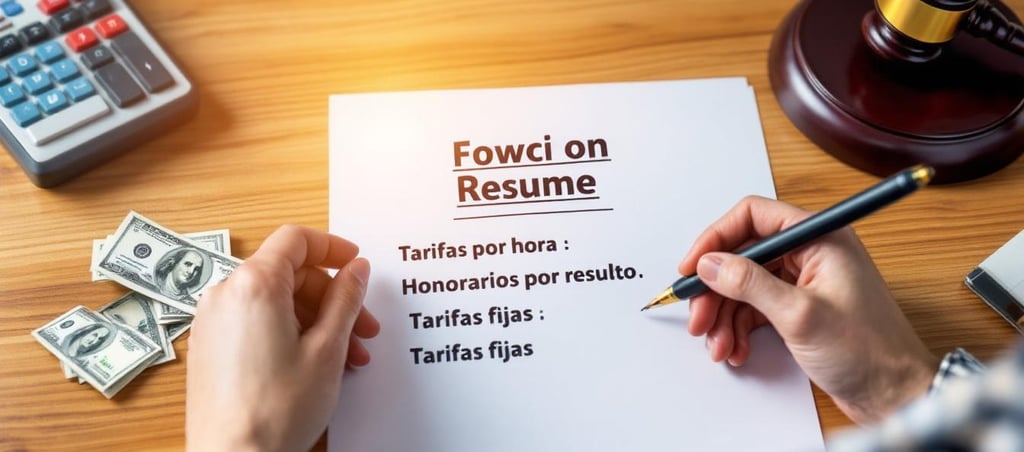

Meeting and Evaluating Prospective Lawyers
Finding the right lawyer involves more than checking credentials on paper. Meeting with attorneys face-to-face, or through a video call, lets you gauge their style, values, and whether you feel comfortable working with them. Each conversation helps you see if their personality matches your needs and if you trust them to handle your most important legal issues. Knowing how to approach these meetings can make all the difference in how to choose the right lawyer in Florida.
Preparing for the Initial Consultation: Offer preparation tips to maximize the value of your first meeting and achieve effective communication.
Walking into your first legal meeting without a plan can feel overwhelming. To make the most of your initial consultation, preparation is key. Here are steps you can take to make your first meeting count:
Gather and organize your documents. Bring any paperwork related to your case. This includes contracts, letters, summons, court documents, medical reports, or police reports. Clear organization helps you tell your story fast and gives the lawyer what they need to offer real advice.
List your main questions. Write out everything you need to know about your type of case. For example, if you’re facing a criminal charge, you might want to ask how similar cases have been handled before or what defenses are available. Solid questions help steer the conversation to what matters most.
Think about your goals and concerns. What do you want from your case—a quick solution, a fair settlement, or just peace of mind? Be ready to discuss what matters most each step of the way.
Be honest and open. The more details you share, the better the lawyer can help. Don’t hold back facts, even if they seem embarrassing. Trust is built through clear, honest communication from the start.
Bring a notepad. Use it to jot down key points and next steps during your meeting. Law can be complex, and notes help you remember advice and compare lawyers later.
When you meet the lawyer, pay attention to how they listen and respond. Are they patient when you explain, or do they rush you? Do they answer your questions in plain language, or does their talk leave you more confused? The best lawyers in Florida explain things clearly and create space for your input.
Effective communication goes both ways. Good lawyers will ask about your preferred style—some clients want regular updates while others prefer a summary only if big news happens. Make your preferences known now so there are no surprises later.
Taking charge at the initial consultation puts you in a better position to decide if this lawyer is the right fit. Each meeting will bring you one step closer to knowing how to choose the right lawyer in Florida who matches your needs, style, and goals.
Making Your Final Decision
Deciding which Florida lawyer is right for you means tying all your research together and trusting your judgment. The final choice is a mix of facts, impressions, and a bit of gut instinct. Once you’ve met with attorneys, gathered background info, reviewed fees, and reflected on your needs, it’s time to narrow down your options and commit to the lawyer who feels right for your unique case.
Comparing Your Top Choices
Start by focusing on your top contenders. Review your notes and see who checks the most boxes based on your priorities. Keep these points in mind when you compare:
Communication style: Did the lawyer explain things clearly? Were your questions answered with patience and respect?
Relevant experience: Did they show strong results in cases similar to yours?
Fee transparency: Was it easy to understand how you’ll be charged, and did you get honest answers about costs?
Personal connection: Did you feel comfortable and respected, not rushed or pressured?
Availability: Can they give your case the attention it deserves, or are they overloaded with other matters?
This is not just about skill but also about finding someone you can trust with sensitive parts of your life.
Trusting Your Instincts
No checklist can capture every nuance. Sometimes, a lawyer looks perfect on paper, but there’s just something missing when you talk face to face. Trust your comfort level and intuition. If you felt heard during the consultation, you’ll likely work well together. If you felt uneasy or misunderstood, keep looking. Your lawyer should make things easier, not more stressful.
A trustworthy lawyer will encourage your questions and offer solutions—not just sales pitches. If you left the meeting with a sense of relief or clarity, this is usually a positive sign.
Reviewing All the Facts: A Checklist
Before you sign any agreement, pause and review everything you’ve learned. Use the following step-by-step checklist to keep the process clear and stress-free:
Check credentials: Make sure your chosen attorney is in good standing with the Florida Bar.
Confirm relevant experience: Review case history and make sure it aligns with your needs.
Read client feedback: Scan recent reviews and testimonials to uncover strengths and weaknesses.
Understand the fee agreement: Read all documents and ask for plain-language explanations of costs.
Evaluate communication: Recall how you felt during each meeting and how promptly your questions were answered.
Write down your top three picks: List your top choices and compare them side by side.
Double-check availability: Make sure the lawyer can start working on your case right away, if needed.
Go with your gut: Don’t ignore your comfort level with the lawyer and their staff.
If you work through these steps thoughtfully, you’ll know how to choose the right lawyer in Florida for your situation. Taking time now pays off with peace of mind and a stronger outcome for your case.
Conclusion
Choosing the right lawyer in Florida comes down to clarity, trust, and practical steps. Paying attention to credentials, experience, client feedback, and strong communication gives you a better shot at securing capable legal representation. Asking the right questions, being honest about your needs, and sticking to your goals can make this process less stressful and more rewarding.
These tips put you in control and lead you to a lawyer who matches your case and values. Taking time now means you’ll likely work with someone who makes you feel supported all the way. Thank you for reading—share your thoughts or let others know your own lawyer selection stories. Your journey to the right legal partner starts here, and you have the tools to make a smart choice.
